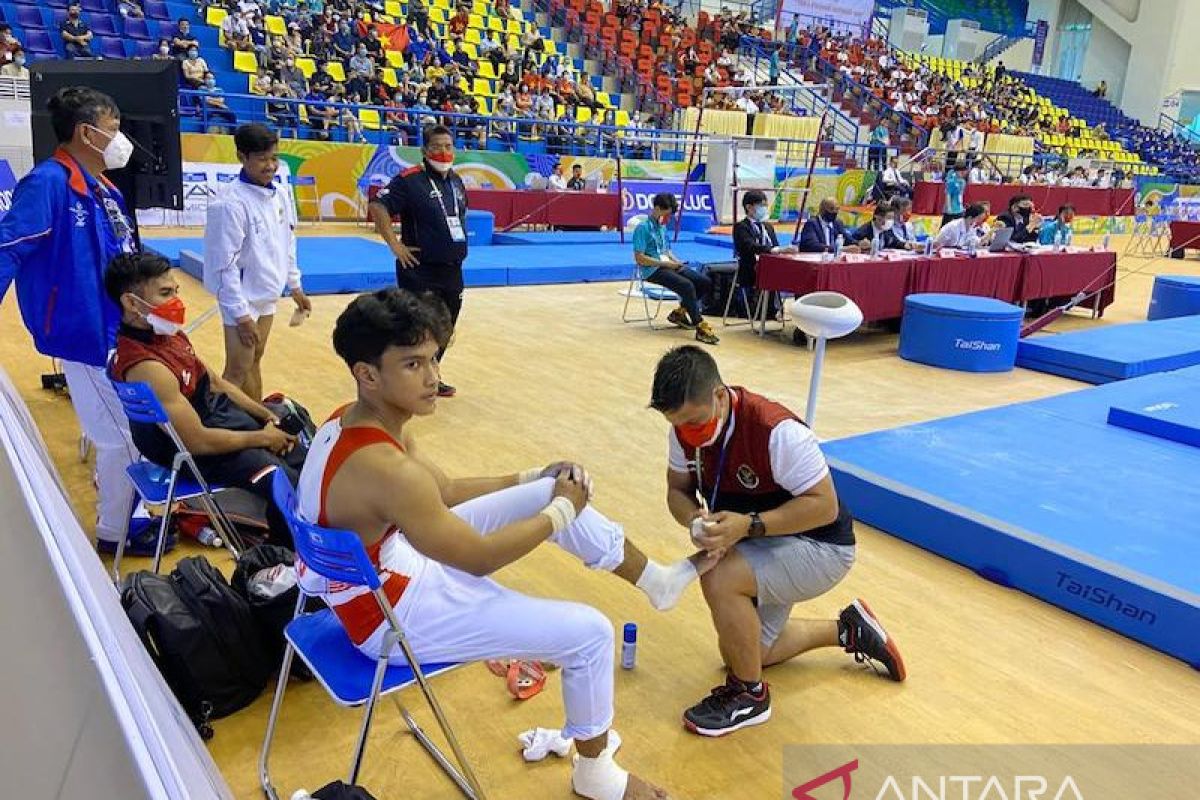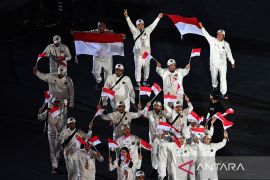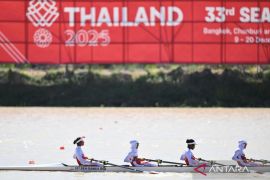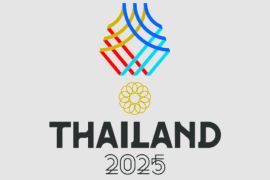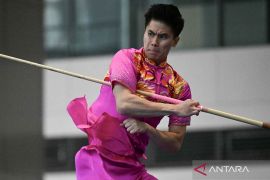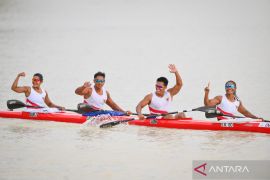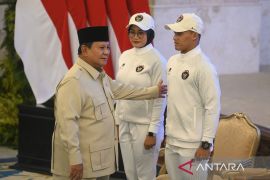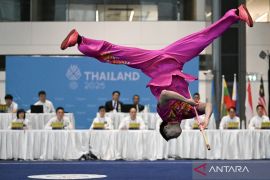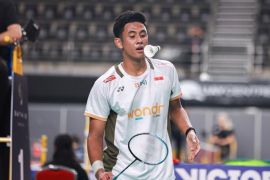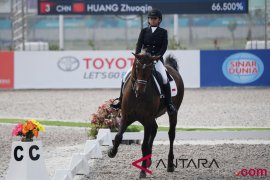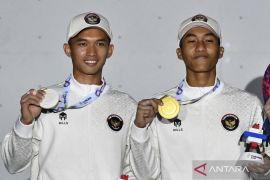The achievement met President Joko Widodo’s target of reaching the top 3.
Many parties have attributed this success to the implementation of a new system for the determination of the sports and events in which the country participates.
For the SEA Games, Indonesia formed a review team staffed by representatives from the Ministry of Youth and Sports, the Indonesian Olympic Committee (KOI), the National Sports Committee of Indonesia (KONI), and experts to analyze athletes' chances of winning medals based on their track records and by conducting a series of tests.
In short, only those who had the potential to win medals were sent to the SEA Games. Finally, just 499 Indonesian athletes competed in 32 sports and 315 events at the Games. The size of this year’s contingent was half compared to the one sent for the 2019 SEA Games in the Philippines.
Despite cutting the number of athletes, Indonesia's achievement at the 2021 SEA Games was surprising. With a medal tally of 69 golds, 91 silvers, and 81 bronzes, the country finished third, behind Vietnam and Thailand, which placed first and second, respectively.
The Indonesian contingent only failed to meet the President’s expectations in terms of the gold medal haul, bagging less than 70 gold medals.
National Sports Grand Design
Indonesia's achievements at the SEA Games had previously declined: as seen at the 2015 SEA Games and the 2017 SEA Games, when it ranked fifth. However, the country bounced back to fourth place at the 2019 SEA Games.
To improve the nation’s achievement in sports, President Widodo called for the implementation of new strategies.
As the fourth most populated country, it is ironic that Indonesia has yet to clinch a high rank at the Olympics.
During the 38th National Sports Day celebrations, President Widodo issued Presidential Regulation Number 86 of 2021 regarding the National Sports Grand Design (DBON). It was further strengthened by Law Number 11 of 2022 regarding Sports.
As part of its new strategy, the Ministry of Youth and Sports decided to use SEA Games as a secondary target to qualify for the 2024 Paris Olympics.
Youth and Sports Minister Zainudin Amali described Indonesia’s achievement at the 2021 SEA Games in Vietnam as interesting. Even though the number of athletes dispatched was reduced, the country managed to reach a higher position at the multi-sport event.
“This means that we have implemented the DBON well because all dispatched athletes were reviewed,” Amali remarked.
Due to the achievement, the government will implement a stricter system when sending athletes to compete in the 2023 SEA Games, the minister emphasized.
Secretary general of KOI, Ferry J. Kono, who also served as the chef de mission (CDM) of the Indonesian team for the 31st SEA Games in Vietnam, said that almost 90 percent of the results of the analysis of the review team were close to the results at the 2021 SEA Games.
"There were 19 (targeted) gold medals that failed to be obtained, but there were ten gold medals that were (unexpectedly) obtained," he pointed out.
According to him, the team’s analysis would have been more precise had Indonesia had access to data on athletes from competitor countries. Given that in the past three years, there has been a vacuum due to the COVID-19 pandemic, the review team only used track record data and fitness tests.
However, the analysis will be much better in the future because the review team has data on three thousand athletes competing at the SEA Games, based on Indonesia's participation at the Vietnam SEA Games.
At the 31st SEA Games in Vietnam, Indonesia emerged as the overall champion in four sports: rowing/canoeing/kayaking, shooting, archery, and volleyball. The sport that did not succeed in fetching medals was fencing.
Athletes' performance
With the implementation of the new strategy, the SEA Games in Vietnam were quite different from the SEA Games in the previous years since all athletes dispatched were targeting to bag medals.
The SEA Games presented a tough challenge for all athletes, both experienced athletes and those making their SEA Games debut. One of them was Abiyu Rafi, a 20-year-old gymnast who previously clinched gold at the National Sports Week (PON) in Papua in 2021.
Rafi’s performance in the gymnastics all-around event at the Vietnam SEA Games was deemed unsatisfying. He did not finish any of the gymnastics apparatus well; he also could not finish the last event—pommel horse—due to an injury sustained while performing in the horizontal bar event.
"This is his first SEA Games, but he knew that he had been burdened with the medal target. Thus, he did not enjoy the whole match," Indonesian Gymnastics National Team coach Indra Sabarani said.
The same thing also happened with Puspa Arumsari, Indonesia’s mainstay pencak silat athlete who previously won gold at the 2018 Asian Games. She failed to secure gold at the Vietnam SEA Games and finished in second place.
Meanwhile, Sutjiati Kelanaritma Narendra failed to participate in the SEA Games. The athlete who previously won two gold medals at the Papua PON said that she was sad that she could not go because of a lack of funds.
She also had to accept the fact that rhythmic gymnastics was not included in the priority list of the National Sports Grand Design.
A different story played out for the national futsal team. The team was almost not included for the Vietnam SEA Games as it was considered to have a low potential of clinching gold. However, after finishing as the runner-up at the AFF Championship, the team was sent for the SEA Games and, in the end, came home with a silver medal.
Manager of the men’s national volleyball team, Loudry Maspaitella, who also serves as head of National Athletes Selection at the Indonesian Volleyball Association (PBVSI), noted that sports associations know the strength of each sport the best.
“Unfortunately, sometimes they do not own strong research and development data because there are also associations that are not active,” he said.
Therefore, compared to the data owned by the review team, their data is weak.
It is not easy to adopt a new system; it takes patience and high levels of awareness from various parties to give the utmost importance to the state's interests.
It is still essential to consider athletes as the main actors because the essence of achievements not only makes the nation proud but also creates a skilled generation.
Related news: SEA Games: KOI ready to add more Indonesian juries, referees
Related news: Indonesia's success in 2021 SEA Games fulfills expectations: minister
Editor: Rahmad Nasution
Copyright © ANTARA 2022
